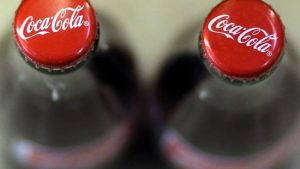
Brazilian beverage producers, including groups representing Ambev, Heineken and Coca-Cola, are fighting a change in the production monitoring system for tax purposes that they say will leave the industry exposed to fraud and put trade secrets at risk. .
In the new system, called Bloco K, companies will be responsible for informing the tax authorities, manually, the quantity of ingredients purchased and the volumes produced by them.
The system would replace the use of machines to monitor the volumes of soda and beer produced - a high-cost technology created to reduce tax fraud, but which ended up being considered an exaggeration.
The IRS says the change is necessary to cut costs and make better use of the revenue generated by state and federal taxes that, combined, account for an average of 44 percent in the case of beer.
But the change comes at a difficult time for Ambev, the biggest selling brewery in Brazil, controlled by the multinational giant AB InBev.
To adopt the new system, companies will have to stop production at the end of the year, at the height of summer in the southern hemisphere, according to Sicpa Brasil, a company that manufactures the current system.
And Ambev is still working to recover from the slowdown in sales that hurt the results of the first half of the year.
The big producers also deal with a growing group of craft breweries and do not want to make life easier for small ones.
Trade associations in the beverage industry said the new taxation method could allow smaller competitors to mask production numbers to pay less tax, thus offering lower prices than larger competitors.
In August, the Brazilian Association of the Soft Drink and Non-Alcoholic Beverages Industries (Abir), the Brazilian Beverages Association (Abrabe), the Brazilian Beer Industry Association (CervBrasil) and the Brazilian Institute of Competition Ethics (Etco) said to the Federal Revenue Secretary, Jorge Rachid, in a letter, that they were concerned with the replacement of the monitoring systems.
Ambev, Heineken and Coca-Cola declined to comment. The various phone calls and e-mails sent to the IRS have not been returned. The agency has not given any indication that it will reverse or postpone its decision.
There is evidence that Sicobe, as the current tax system is known, helped to prevent companies from evading taxes. Tax collection increased by 20 percent after the introduction of the system, according to a study by the Getúlio Vargas Foundation commissioned by beverage associations.
Sicobe uses machines to measure the volumes of beverages produced and tracks the final products using bar codes. This makes it harder for companies to mask the numbers.
“Before Sicobe, the beverage segment was known for its high tax evasion rate,” said Alexandre Gleria, a partner specializing in Tax Law at the ASBZ Advogados office in São Paulo. "This topic needs to be discussed from a fiscal perspective, but also from a competitive perspective."
ASBZ has beverage and chemical manufacturers among its customers. Gleria declined to name them, saying his comments did not refer to a specific company.
Source: Exame.com (13/10/2016)



